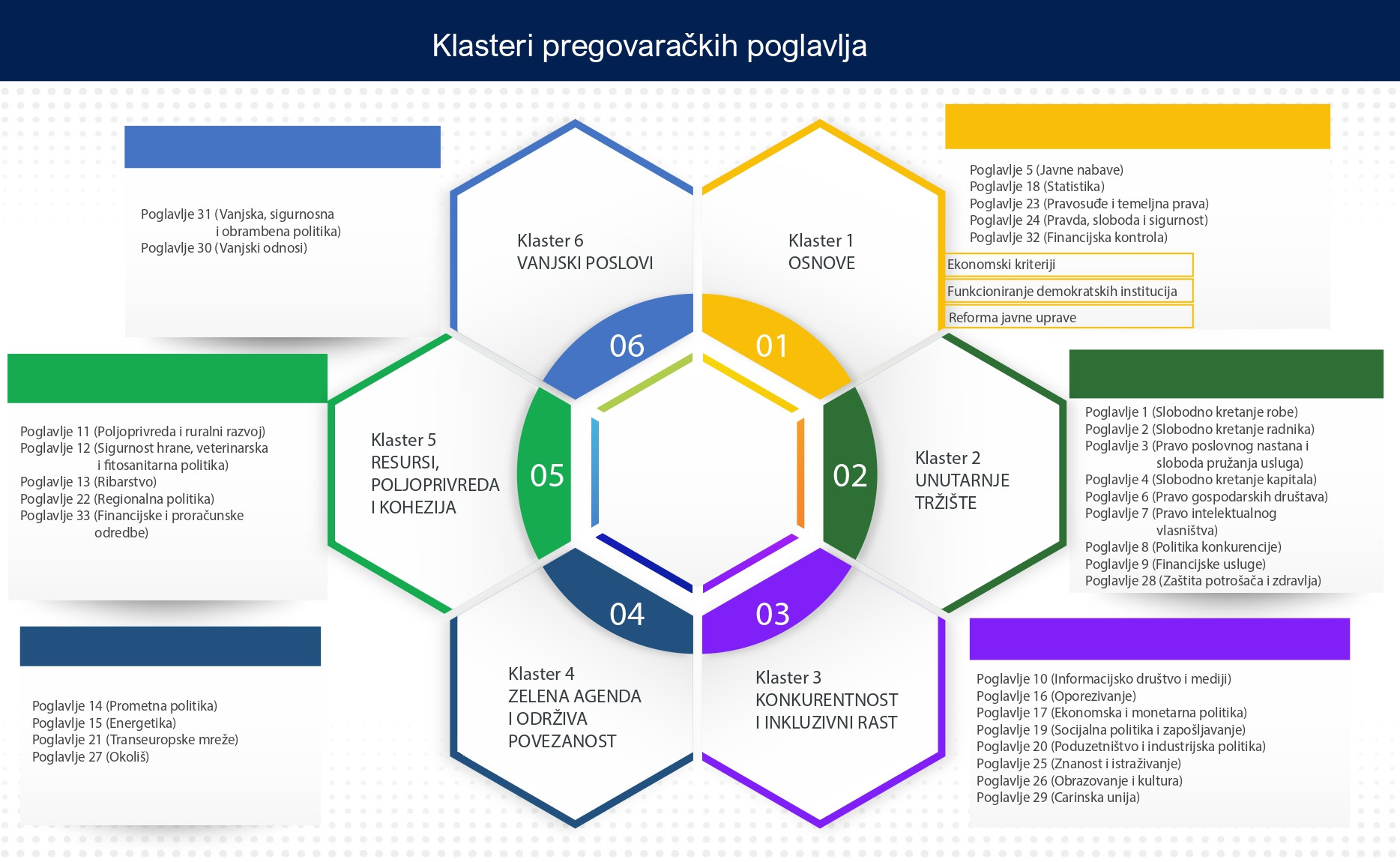What are the negotiations on accession to the EU?
After a country receives a candidate status, the next step would be opening the EU accession negotiations.
Accession negotiations is a process in which a candidate country negotiates with the EU member states conditions under which the country would become a new EU member state.
The basic rule of negotiations is that the candidate country must transpose, implement and apply the whole EU acquis, and the topics of negotiations are dynamics and the manner in which it would be done.
The EU acquis is a legal legacy of the EU and represents a compendium of common rights and obligations for EU member states.
The EU acquis is constantly developed, consisting of:
• primary law, i.e. founding treaties, its amendments and protocols, accession treaties and Charter of Fundamental Rights of the European Union;
• secondary law, i.e. regulations, directives, opinions and decisions, and other acts such as acts on foreign and security policy of the EU, inter-institutional agreements, etc.;
• other sources of law, i.e. Judgements of the Court of the EU, declarations and resolutions of the EU and international law.
Part of the EU law are also international agreements concluded by the EU with third countries or with international organisations, and general legal principles.
For the needs of negotiations, the EU acquis is divided into 35 negotiation chapters, and with introduction of ‘new methodology’ in negotiations in 2020, these chapters are grouped in six clusters.

Chapters 34 - Institutions and 35 - Other issues are not included in clusters, and they are usually not negotiated, but these chapters are only formally opened and closed. In any case, Chapter 34 sets the number of representatives of the new state in the EU institutions, and Chapter 35 may include any issue that was not the subject of other chapters. These Chapters are usually left for the end, if not otherwise set by the negotiation framework.
Decision on opening negotiations is made at the political level by the European Council unanimously. That is preceded by a decision at the level of ministers in the EU Council (usually General Affairs Council) which is also made unanimously. The European Council and the Council of the EU make decision in the form of conclusions.
The decision is preceded by the report of the European Commission (usually regular annual report, but it could be a special report), and its recommendation on opening negotiations.
Decision on opening negotiations, as a rule, follows after certain progress has been made in fulfilling criteria for EU membership.
Negotiations take place between a candidate country and the EU member states.
The first formal step after the decision on opening negotiations is adoption of negotiation framework of the EU. Negotiation framework defines key principles, procedures and institutional framework for negotiations. Draft negotiation framework is proposed by the European Commission, and adopted by the EU Council, unanimously in the form of a conclusion.
Negotiations take place in the form of intergovernmental conferences. Participants are representatives of the EU member states and of the European Commission and representatives of a candidate country. Positions of the EU member states are represented by the representative of the state presiding the EU Council. Negotiations are usually initiated by the first inter-governmental conference where the EU negotiation framework is presented, as well as introductory statements by the EU and the candidate country.
 Bosna i Hercegovina
Bosna i Hercegovina 
